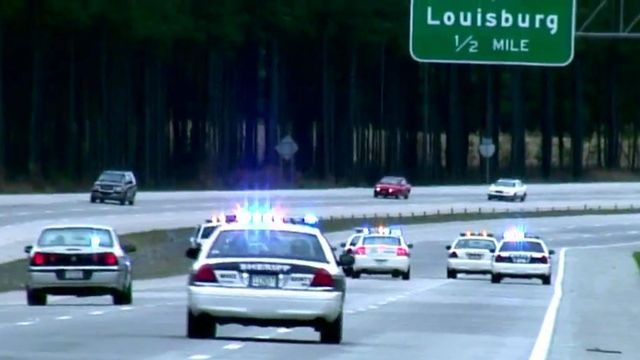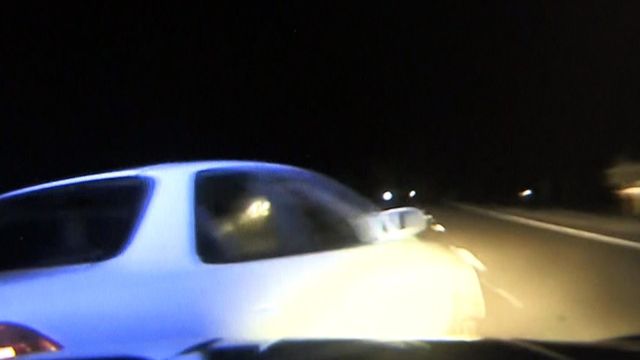From aggressive to passive, police chase policies vary in NC
High-speed chases are high danger for officers, suspected offenders and other drivers. A WRAL News investigation found how they are handled differs greatly from department to department. Not only are the rules of engagement different, so are the rules once a chase is underway.
Posted — Updated- Vehicles with technical violations, like equipment problems, are non-hazardous violators.
- Those who commit a single moving violation but return to lawful driving are an intermediate priority.
- Speeders, impaired drivers, aggressive drivers and those believed to have committed violent crimes are classified as an immediate hazard and should be apprehended as quickly as possible.
Wellington Scott, a retired trooper who now trains officers, makes it clear that suspected offenders, not law enforcement, start chases.
"The person who is fleeing has now made the decision to place the officer at risk, the public at risk, and other officers who are responding," Scott said.
"I'm from the old school, and I feel, if we don't continue to be aggressive, then people are going to take advantage of us," Wake County Sheriff Donnie Harrison said.
"It's something we need to do," Harrison said, adding that someone who runs from the law may have something to hide.
"Has he done something like kill somebody, rob somebody, rape somebody? That's what goes through my mind as an officer when this guy takes off. What has he done? Or does he have a load of dope? It it worth chasing him? Should I risk my life chasing him?" he said. "Well, I took an oath to serve and protect, and that's what I continue to do."
Chase policies in city police departments are much more restrictive.
All four local departments have thorough protocols in which supervisors approve an officer’s decision to chase. The rules also say the supervisor or the chasing officer can suspend the chase at any time, depending on conditions that increase the threat to the public or the officer, such as adverse weather or traffic congestion.
WRAL Investigates found the more aggressive policies to translate from paper to the pavement.
In 2016 and 2017, Highway Patrol troopers were involved in 1,012 chases statewide. Wake County deputies reported 95 chases during that two-year period, followed by Fayetteville police with 22 chases and Raleigh police with 18. Despite numerous requests for chase data, the Durham Police Department didn't provide any information.
In all of those chases, 63 people were injured, most of them in the fleeing vehicle.
Despite some calls to simply not chase and try to catch someone at a later date, Scott said that’s not an option.
"I'd say, in a perfect world, that would be great, but there are some people doing some very bad things out there," he said, adding that officers would have a tough time proving in court who was driving the vehicle unless they clearly see someone in the driver's seat.
"Chasing is very dangerous. I know that firsthand. I've been in it. I've been involved in it all my life, and I've been in quite a few chases," Harrison said, adding there’s inherent danger in everything law enfocement officers do.
"Some people may say, 'You're taking a chance. You could kill somebody.' True," he said. "We could kill somebody with a firearm. About everything we do in this business, there's a lot of liability behind it."
But he said he feels that risk is worth it, and chasing someone sends a message: "If they know we're going to chase them if they do something wrong, I feel like it's a deterrent."
Related Topics
• Credits
Copyright 2024 by Capitol Broadcasting Company. All rights reserved. This material may not be published, broadcast, rewritten or redistributed.






